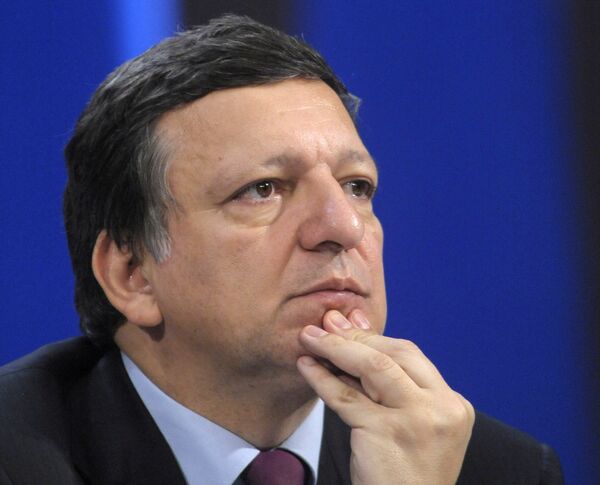ANKARA, July 13 (RIA Novosti) -- Five of the six parties to the Nabucco gas pipeline project signed on Monday an intergovernmental agreement on the transit of Caspian gas to Europe, skirting Russia.
The document was signed by Turkey, Austria, Bulgaria, Romania and Hungary.
The sixth participant, Germany, did not sign the deal, since it is not a transit country.
European Commission President Jose Manuel Barroso and officials from about 20 countries attended the signing ceremony.
A spokesman for the European Commission's energy policy earlier said the agreement was based on the principles "of mutual solidarity, mutual equality and interdependence."
The project, estimated at $7.9 billion, is designed to pump Central Asian gas via Turkey to Austria and Germany through Bulgaria, Romania and Hungary. The pipeline is to go on stream in 2014.
Among the potential gas suppliers for the pipeline are Azerbaijan, Uzbekistan, Turkmenistan, Iran and Iraq.
The project will be a continuation of the existing Baku-Tbilisi-Erzurum pipeline and is to transport 20 billion cubic meters of gas a year. Two-thirds of the pipe length will pass across Turkish territory.
Ankara believes that Nabucco will pave the way for the country's future EU integration.
Turkish Prime Minister Recep Tayyip Erdogan invited Russia and Iran on Monday to join Nabucco.
The Nabucco pipeline is seen as a rival to the Moscow-backed South Stream project designed to annually pump 31 billion cubic meters of Central Asian and Russian gas to the Balkans and on to other European countries, the pipeline's capacity could eventually reach 63 billion cubic meters.
Europe has expressed concern about its reliance on Russia, which meets a quarter of its gas needs. Calls for diversified supplies intensified following a bitter price dispute between Russia and Ukraine in early 2009, when Moscow cut off gas to Ukraine, affecting consumers across Europe.
Moscow has argued that South Stream and Nord Stream would reduce EU dependence on transit states like Ukraine and improve European energy security.


